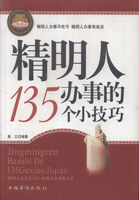Fast-forward now to 2003. In that year, crude oil cost a little more than$30 per barrel. Since then, crude oil prices have increased more than fourfold, proportionally about as much as in the 1970s. Now, as in 1975, adjusting to such high prices for crude oil has been painful. Gas prices around $4 a gallon are a huge burden for many households, as well as for truckers, manufacturers, farmers, and others. But, in many other ways, the economic consequences have been quite different from those of the 1970s. One obvious difference is what you don’t see: drivers lining up on odd or even days to buy gasoline because of price controls or signs at gas stations that say“No gas.”And until the recent slowdown-which is more the result of conditions in the residential housingmarket and in financial markets than of higher oil prices-economic growth was solid and unemployment remained low, unlike what we saw following oil price increases in the 70s.
For a central banker, a particularly critical difference between then and now is what has happened to inflation and inflation expectations. The overall inflation rate has averaged about 3~1/2 percent over the past four quarters, significantly higher than we would like but much less than the double- digit rates that inflation reached in the mid-1970s and then again in 1980. Moreover, the increase in inflation has been milder this time-on the order of 1 percentage point over the past year as compared with the 6 percentage point jump that followed the 1973 oil price shock. From the perspective of monetary policy, just as important as the behavior of actual inflation is what households and businesses expect to happen to inflation in the future, particularly over the longer term. If people expect an increase in inflation to be temporary and do not build it into their longer-term plans for setting wages and prices, then the inflation created by a shock to oil prices will tend to fade relatively quickly. Some indicators of longer-term inflation expectations have risen in recent months, which is a significant concern for the Federal Reserve. We will need to monitor that situation closely. However, changes in long-term inflation expectations have been measured in tenths of a percentage point this time around rather than in whole percentage points, as appeared to be the case in the mid-1970s. Importantly, we see little indication today of the beginnings of a 1970s-style wage-price spiral, in which wages and prices chased each other ever upward.
A good deal of economic research has looked at the question of why the inflation response to the oil shock has been relatively muted in the current instance. One factor, which illustrates my point about the adaptability and flexibility of the U.S. economy, is the pronounced decline in the energyintensity of the economy since the 1970s. Since 1975, the energy required to produce a given amount of output in the United States has fallen by about half. This great improvement in energy efficiency was less the result of government programs than steps taken by households and businesses in response to the higher energy prices, including substantial investments in more energy- efficient equipment and means of transportation. This improvement in energy efficiency is one of the reasons why a given increase in crude oil prices does less damage to the U.S. economy today than it did in the 1970s.
Another reason is the performance of monetary policy. The Federal Reserve and other central banks have learned the lessons of the 1970s. Because monetary policy works with a lag, the short-term inflationary effects of a sharp increase in oil prices can generally not be fully offset. However, since Paul Volcker‘s time, the Federal Reserve has been firmly committed to maintaining a low and stable rate of inflation over the longer term. And we recognize that keeping longer-term inflation expectations well anchored is essential to achieving the goal of low and stable inflation. Maintaining confidence in the Fed’s commitment to price stability remains a top priority as the central bank navigates the current complex situation.
Although our economy has thus far dealt with the current oil price shock comparatively well, the United States and the rest of the world still face significant challenges in dealing with the rising global demand for energy, especially if continued demand growth and constrained supplies maintain intense pressure on prices. The silver lining of high energy prices is that they provide a powerful incentive for action-for conservation, including investment in energy-saving technologies; for the investment needed to bring new oil supplies to market; and for the development of alternative conventional and nonconventional energy sources. The government, in addition to the market, can usefully address energy concerns, for example, by supportingbasic research and adopting well-designed regulatory policies to promote important social objectives such as protecting the environment. As we saw after the oil price shock of the 1970s, given some time, the economy can become much more energy-efficient even as it continues to grow and living standards improve.
Let me turn now to the other economic challenge that I want to highlight today-the productivity performance of our economy. At this point you may be saying to yourself,“Is it too late to book Ali G?” However, anyone who stayed awake through EC 10 understands why this issue is so important. As Adam Smith pointed out in 1776, in the long run, more than any other factor, the productivity of the workforce determines a nation‘s standard of living.















